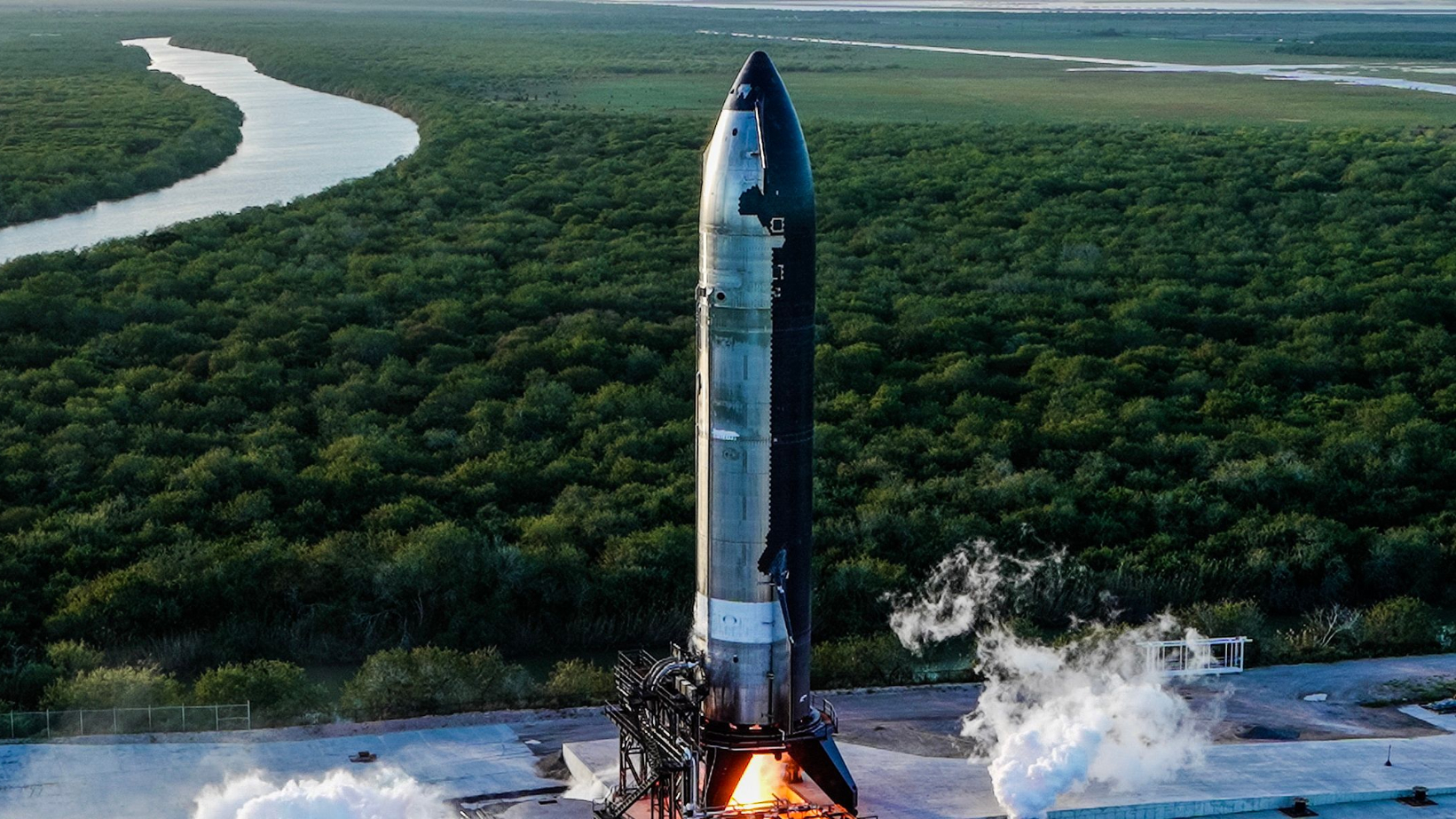
SpaceX is ready for the next Starship flight test, aiming to make strides toward full reusability of the launch system at the start of what promises to be a massive year for the launcher.
Launch from Starbase Orbital Launch Pad A in South Texas is currently scheduled for 5:00 p.m. Eastern (2200 GMT) Jan. 10. The launch window will be open for 97 minutes, with backup days running to Jan. 16. You’ll be able to tune into the livestream on Space.com, if SpaceX makes it available as usual.
Starship consists of the massive first stage called Super Heavy and an upper-stage spacecraft known as Starship, or simply “Ship.” The launch from Boca Chica Beach will feature a number of new upgrades and objectives, building on the spectacular Flight Test 6 in November of last year.
Most notably, this will be the first time SpaceX attempts to deploy payloads with Starship, using 10 Starlink simulators to test the system’s ability to deploy active next-generation Starlink satellites in the future. Deploying next-gen, heavier and more advanced Starlink satellites will be one of the uses of Starship.
The simulators will be on the same suborbital trajectory as the Starship upper stage, with Ship targeting a splashdown in the Indian Ocean.
In terms of upgrades, the flaps on the Starship upper stage are reduced in size and closer to the tip of the vehicle, reducing their exposure to heat and allowing simplified protective tiling, while redesigns to the propulsion system allow a 25% increase in propellant volume, SpaceX revealed in a statement.
“The ship’s heat shield will also use the latest generation tiles and includes a backup layer to protect from missing or damaged tiles,” the statement says.
Super Heavy, meanwhile, will be reusing Raptor engine number 314, which flew on Booster 12 and was spectacularly caught by the tower chopsticks on Flight Test 5, in a small step toward reusability.
The aim is for Super Heavy — the 14th booster of its kind — to make a return to the pad for a catch attempt. If the necessary conditions are not met, however, the booster will instead head for the Gulf of Mexico for a landing burn and soft splashdown.
The tower has also received upgrades. It will test radar sensors for increased accuracy when determining the distances between the chopsticks and returning vehicle, while there are also improved sensor protections to prevent damage observed in previous launches.
“This new year will be transformational for Starship, with the goal of bringing reuse of the entire system online,” SpaceX said in the statement. The company aims to fly increasingly ambitious missions, building towards sending humans and cargo into orbit around the Earth, as well as on to the moon and Mars.
Article by:Source andrew.w.jones@protonmail.com (Andrew Jones)
























